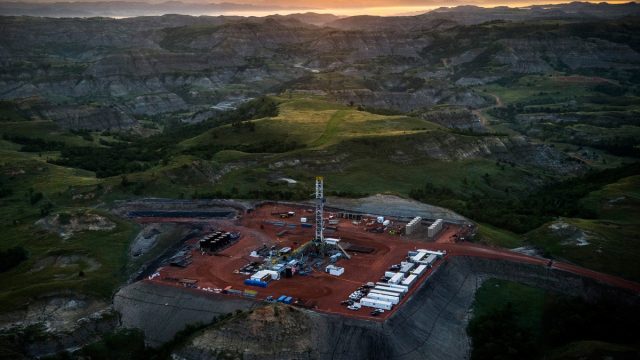"Let's figure out how to become the energy superpower in the world."

“Our resource potential in this country is vast, it’s large, it’s unprecedented even more so than any of us would have thought five or six years ago,” American Petroleum Institute President Jack Gerard said during yesterday’s State of American Energy summit. “So we need to rethink these policies, including the crude export policy. The President talks about doubling exports in this country. That could include the energy equation, which today, unannounced five years ago, is now energy specifically oil and natural gas. We can make a great contribution there. We don’t have to think of this in the same mind-set that we did in the 70’s during the Arab oil embargo. It’s a new day, it’s a new time, let’s look at these policies. Let’s figure out how to become the energy superpower in the world.”
What is Gerard talking about? The fact that for the last 40 years – since the Carter-era oil embargoes – the export of US crude oil has been largely banned. US producers can export things like coal, natural gas and food crops but the export of oil is, with a few minor exceptions, banned.
In years past this hasn’t been much of an issue. US production of oil has been in decline for decades, so there was little need to export. But now with domestic production surging there is a glut of oil in the US domestic markets. Economics 101 tells us that when supply outstrips demand, prices drop.
Dropping prices would hurt domestic oil production, which in turn hurt one of the few bright spots in our national economy.
Allowing oil producers access to foreign markets would remove what is a de facto cap on domestic oil production. After all, we can only use so much oil domestically. Allowing American oil to flow into foreign markets is good for the American economy, and good for the world oil markets.




